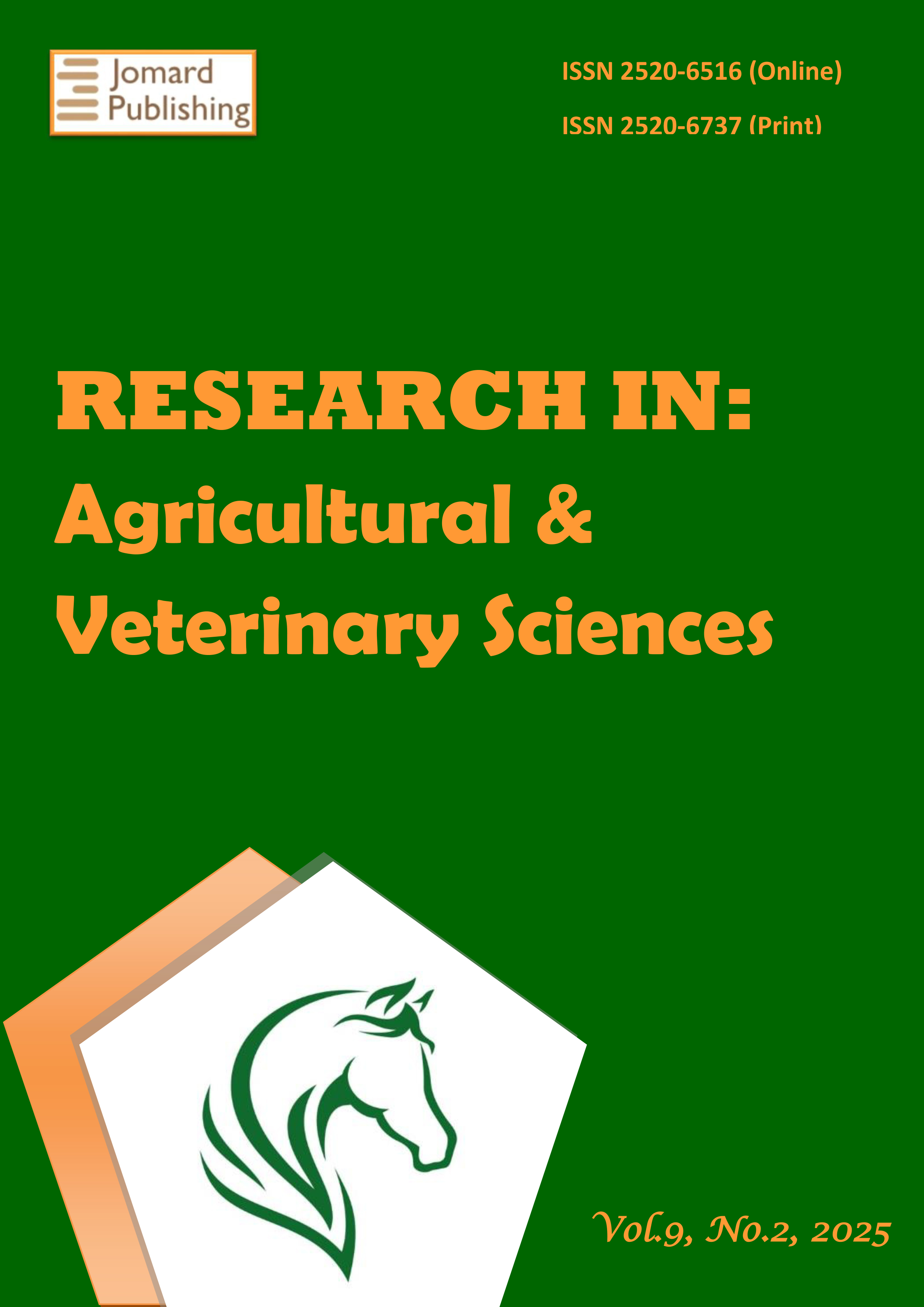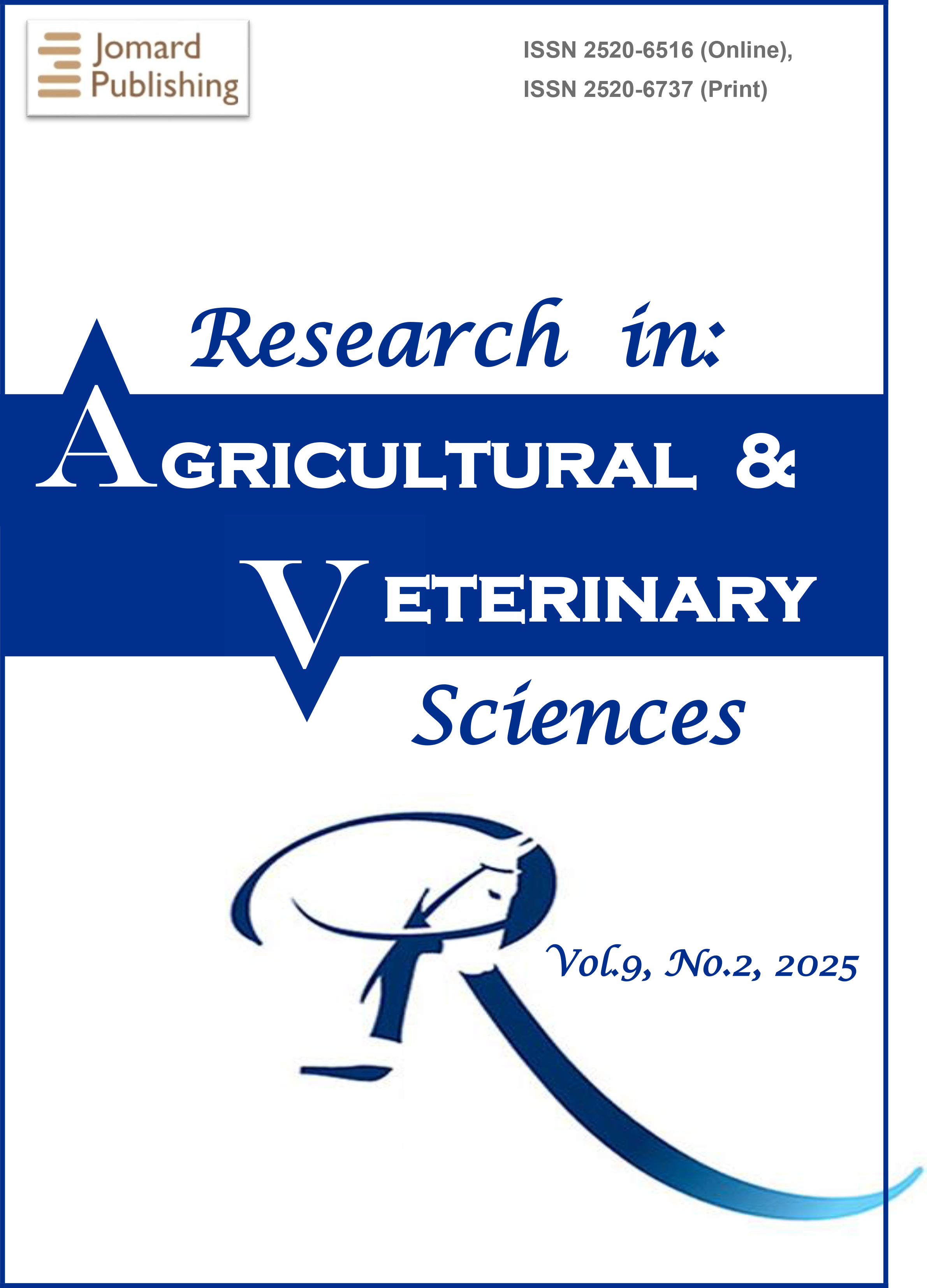Influence of Odontonema Strictum Oil on the Growth Performance and Ruminal Fermentation of Barbari Bucks
- Published: 06-08-2025
Share
Odontonema strictum oil is rich in several bioactive compounds with medicinal properties which are less toxic, environmental friendly and can promote food safety. To further examine their effects, a 60 days’ experiment (excluding 14 days’ quarantine period) was carried out using 28 Barbari bucks of about 8 months of age with an initial body weight of 30.55 ± 0.20 kg. Animals were stratified by live weight and randomly assigned to four treatments (n=7 goats per treatment). A completely randomized design was adopted and animals in treatment 1 (T1) which also served as the control received basal diet only while T2, T3 and T4 were fed basal diet supplemented with 0.1 mL, 0.2 mL and 0.3 mL Odontonema strictum oil respectively. Odontonema strictum oil supplementation enhanced (p<0.05) the average body weight gain and average daily feed intake. High Odontonema strictum oil supplementation decreased (p˃0.05) the feed conversion ratio, methane enteric emission and improved the concentrations (p<0.05) of total volatile fatty acids, acetate, propionate and ruminal ammonia nitrogen compared to the control. Ruminal temperature, butyrate and pH values were not (p˃0.05) affected by the treatment. In conclusion, Odontonema strictum oil supplementation at 0.3 mL/kg DM feed improved weight gain, feed intake, feed conversion ratio and also have positive effects on ruminal fermentation without causing any detrimental effect on the performance of animals.
- View 419
- Downloads 104
- Saveds 0
- Citations (Crossref) 0


